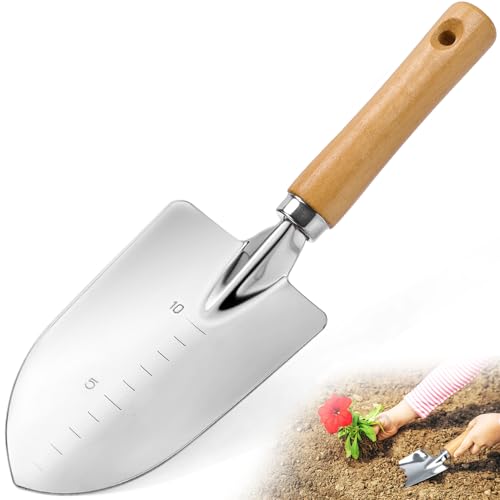Trowels: A Brief Introduction
Trowels are an essential tool in many construction and masonry projects. They are used to spread, shape, and smooth materials such as concrete, mortar, and plaster. Trowels have been used for centuries and have evolved to meet the needs of different applications and materials.
Traditional Materials: Wood and Metal
The earliest trowels were made from wood or metal. Wooden trowels were commonly used in ancient Egypt and ancient Mesopotamia. They were simple in design, with a flat rectangular surface attached to a wooden handle. Wooden trowels were effective for spreading mud and clay.
Metal trowels, particularly those made from copper or bronze, were also popular in ancient times. These trowels were more durable than their wooden counterparts and allowed for a smoother finish. Metal trowels could be reshaped and sharpened as needed, making them versatile tools for masons and builders.
Modern Materials: Steel and Plastic
While wood and metal trowels are still used today, modern materials have gained popularity for their durability and ease of use.
Steel trowels have become the standard for professional masons and plasterers. They are strong, durable, and resistant to wear and tear. Steel trowels also have a smooth surface that allows for a high-quality finish. Additionally, steel trowels can be found in different shapes and sizes to accommodate various applications.
Plastic trowels have emerged as a lightweight and affordable alternative to traditional materials. They are commonly made from high-density polyethylene (HDPE) or nylon. Plastic trowels are non-corrosive, making them suitable for working with substances like concrete and plaster. They are also less likely to leave marks or scratches on delicate surfaces compared to metal trowels.
Specialized Materials: Carbon Fiber and Titanium
In recent years, specialized materials such as carbon fiber and titanium have been introduced in trowel manufacturing. These materials offer unique advantages over traditional and modern materials.
Carbon fiber trowels are extremely lightweight, making them easier to handle and reducing fatigue during extended use. They are also non-conductive and non-magnetic, which is especially useful in certain construction sites where electrical or magnetic interference is a concern.
Titanium trowels are known for their exceptional strength and corrosion resistance. They are significantly lighter than steel trowels and are less likely to rust or tarnish. Titanium trowels are particularly popular in the aviation and aerospace industries due to their high strength-to-weight ratio and resistance to extreme temperatures.
Trowels have evolved over time, with different materials being used to meet the needs of various applications. While wooden and metal trowels were commonly used in the past, steel and plastic trowels have become the standard in modern construction and masonry projects. Specialized materials like carbon fiber and titanium have also gained traction for their unique advantages. Whether you are a professional or a DIY enthusiast, choosing the right material for your trowel can enhance the quality and efficiency of your work.






